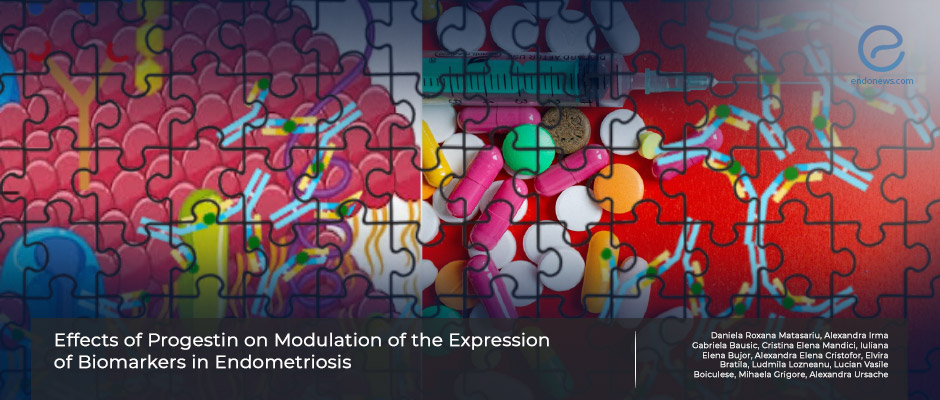Unveiling the Immunological Puzzle: Modulation of Biomarkers in Endometriosis by Progestin Therapy
Aug 22, 2023
What do progestins modify on a cellular basis?
Key Points
Highlights:
- The study explores the potential role of tissue biomarkers and their alterations in response to progestin therapy in endometriosis.
Importance:
- Understanding the modulation of biomarkers in endometriosis by progestin treatment can provide insights into disease mechanisms and potential therapeutic targets.
- The study contributes to the existing knowledge of the immunological portrait associated with endometriosis and associated molecular changes.
What's done here:
- The study involves 60 women with endometriosis who have undergone surgery, divided into two groups: those receiving progestin treatment in the last 3 months (n=24) and those not receiving (n=36) any treatment.
- Osteopontin serum levels are measured using an ELISA kit in healthy women and women with endometriosis, with and without progestin treatment.
- Also, immunohistochemical analyses are performed to assess the tissue expression of CD44 and Osteopontin in endometriotic tissue.
Key Results:
- Healthy women have significantly higher levels of Osteopontin in their serum than those with endometriosis.
- Among women with endometriosis, those undergoing progestin treatment show higher serum levels of Osteopontin, although the difference is not statistically significant.
- CD44 expression is significantly greater in both the endometriotic tissue glands and stroma, and a decrease has been shown in the treated group.
- The group of women with endometriosis not receiving therapy has higher Osteopontin levels compared to the group receiving therapy, but the results were not statistically significant.
- Strong cytoplasmic expression of Osteopontin is observed in the non-treatment group.
Limitations:
- The study does not investigate the functional implications of the observed biomarker changes or their possible pathophysiology.
- The lack of statistical significance in some results may indicate the need for larger sample sizes or further exploration.
Lay Summary
The study by Daniela Roxana Matasariu et al., aimed to investigate the effects of progestin treatment on the expression of biomarkers in endometriosis, specifically focusing on osteopontin and CD44; and their potential role in the pathogenesis of endometriosis.
The researchers conducted the study on women with endometriosis, both those undergoing progestin treatment and those not receiving any treatment, also added 30 health controls who had a laparoscopy, and no sign of endometriosis was found. They employed an ELISA kit to measure the levels of osteopontin in the serum of healthy women and those with endometriosis. Additionally, they used immunohistochemical analyses to assess the tissue expression of CD44 and osteopontin in all patients after endometriotic tissues had been surgically removed.
The results of the study indicated that the healthy control group had significantly higher levels of osteopontin in their serum compared to women with endometriosis. Among the women with endometriosis, those undergoing progestin treatment demonstrated higher levels of osteopontin, although this difference did not reach statistical significance.
Regarding tissue CD44 expression, the study found that it was significantly higher in both the endometriotic tissue glands and stroma and reduced in the progestin therapy group. When osteopontin levels are compared, the endometriosis group not receiving therapy had higher levels compared to the group receiving therapy. The study suggests that endometriosis, CD44, and osteopontin are closely related. Furthermore, it implies that untreated endometriosis may possess a distinct immunological profile compared to treated endometriosis.
In conclusion, the study highlights the potential impact of progestin treatment on modulating the expression of biomarkers, particularly osteopontin and CD44, in endometriosis. Understanding the effects of progestin on these biomarkers could contribute to a better understanding of the pathogenesis of endometriosis and will potentially aid in the development of targeted therapies.
Research Source: https://pubmed.ncbi.nlm.nih.gov/37509675/
cd44 OPN endometriosis cell membrane osteopontin

